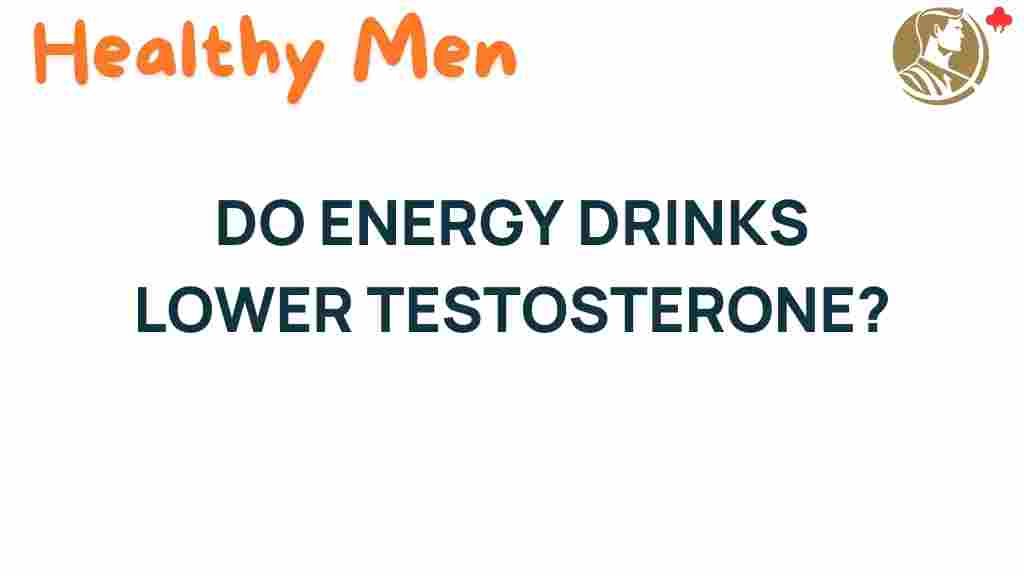The Surprising Effects of Energy Drinks on Testosterone Levels
Energy drinks have surged in popularity over the past few decades, particularly among athletes and those looking to combat fatigue. These beverages promise a quick boost of energy and enhanced performance, but what many people don’t realize is that they may also have significant effects on hormones, particularly testosterone. In this article, we will explore the relationship between energy drinks, testosterone levels, and overall health impact, along with practical implications for lifestyle and wellness.
Understanding Testosterone and Its Importance
Testosterone is a crucial hormone in both men and women, although it is produced in much higher quantities in men. It plays a vital role in:
- Regulating libido and sexual function
- Promoting muscle mass and strength
- Influencing fat distribution
- Contributing to bone density
- Affecting mood and energy levels
Maintaining healthy testosterone levels is essential for overall wellness. Low testosterone can lead to a range of issues, including fatigue, depression, decreased libido, and loss of muscle mass. Understanding how external factors, such as energy drinks, can influence testosterone levels is critical for anyone concerned about their health.
The Composition of Energy Drinks
Energy drinks typically contain a mix of ingredients designed to boost energy and enhance performance. Common ingredients include:
- Caffeine: A central nervous system stimulant that increases alertness and reduces fatigue.
- Sugars: Provides a quick source of energy but can lead to crashes in energy levels later.
- Amino Acids: Such as taurine and L-carnitine, which may help with muscle recovery.
- B Vitamins: Important for energy metabolism.
- Herbal Extracts: Ingredients like ginseng or guarana that may enhance performance.
While these ingredients can offer immediate benefits, they may also have longer-term effects on hormone balance and overall health.
The Impact of Caffeine on Testosterone Levels
Caffeine is one of the primary ingredients in many energy drinks and is well-known for its stimulating properties. Research shows that caffeine can lead to temporary increases in testosterone levels, particularly during exercise. However, the long-term effects of excessive caffeine consumption are still being studied.
Some studies suggest that high doses of caffeine may lead to:
- Increased cortisol levels: Cortisol is a stress hormone that can inhibit testosterone production when elevated.
- Potential hormonal imbalance: Chronic high caffeine intake may disrupt the delicate balance of hormones in the body.
Therefore, while moderate caffeine consumption can enhance physical performance, excessive intake through energy drinks may have adverse effects on testosterone levels.
Energy Drinks and Hormonal Health
Energy drinks not only contain caffeine but also a variety of other compounds that can affect hormonal health. The consumption of these drinks has been linked to:
- Increased Fatigue: Paradoxically, while energy drinks are marketed to combat fatigue, overconsumption can lead to energy crashes, resulting in increased fatigue levels.
- Stress Responses: The stimulatory effects of energy drinks can trigger stress responses, leading to hormonal fluctuations.
- Weight Gain: The high sugar content in many energy drinks can contribute to weight gain, which is associated with lower testosterone levels.
Thus, while energy drinks may provide a temporary boost, their long-term health impact may be detrimental to testosterone levels and overall hormonal health.
Sports Performance and Testosterone
For athletes, maintaining optimal testosterone levels is crucial for peak performance. Testosterone affects endurance, strength, and recovery. However, the use of energy drinks in sports may have mixed effects:
- Short-term Performance Boost: Energy drinks can provide a quick energy boost, which can be beneficial during competitions or intense training sessions.
- Recovery Issues: The crash that often follows energy drink consumption may hinder recovery and ultimately affect performance.
Athletes need to be mindful of their energy drink consumption and its potential effects on their hormonal levels and overall health.
Nutrition and Lifestyle Recommendations
To maintain healthy testosterone levels and overall wellness, consider the following lifestyle and nutrition tips:
- Moderate Energy Drink Consumption: Limit energy drink intake to avoid excessive caffeine and sugar.
- Prioritize Nutrition: Focus on a balanced diet rich in whole foods, including lean proteins, healthy fats, and plenty of fruits and vegetables.
- Exercise Regularly: Engaging in regular physical activity can naturally boost testosterone levels.
- Manage Stress: Incorporate stress-reducing practices such as meditation or yoga to maintain hormonal balance.
- Get Enough Sleep: Quality sleep is essential for hormonal health, including testosterone production.
By making these adjustments to your lifestyle and nutrition, you can better support your hormonal health and overall well-being.
Troubleshooting Low Testosterone Levels
If you suspect that your testosterone levels may be low, consider the following steps:
- Consult a Healthcare Professional: Schedule an appointment to discuss your symptoms and consider testing your hormone levels.
- Evaluate Your Diet: Review your nutritional intake and make necessary adjustments to ensure a balanced diet.
- Assess Your Lifestyle: Consider your exercise routine, sleep patterns, and stress levels to identify areas for improvement.
- Limit Energy Drink Intake: Reduce or eliminate energy drinks from your diet to see if your symptoms improve.
Addressing low testosterone levels may require a multi-faceted approach that involves lifestyle changes and professional guidance.
Conclusion
Energy drinks can be an appealing choice for those seeking a quick energy boost, especially in sports and during demanding lifestyles. However, their health impact on testosterone levels and overall hormonal balance should not be overlooked. While moderate consumption may provide short-term benefits, excessive intake can lead to fatigue, hormonal imbalances, and potentially lower testosterone levels.
To promote wellness and maintain healthy hormone levels, it’s essential to focus on a balanced diet, regular exercise, stress management, and adequate sleep. By being mindful of energy drink consumption and its implications, individuals can better navigate their health and lifestyle choices.
For more information on maintaining healthy testosterone levels and the impact of nutrition on hormones, visit this resource. If you’re interested in the latest research on energy drinks and their effects on health, check out this article.
This article is in the category Nutrition and created by healthymen Team
